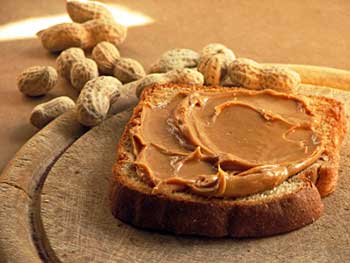More Articles on A Healthy Pregnancy
Thinking About Getting Pregnant?
Congratulations on Your Pregnancy! (for
those who are newly pregnant)
What is a healthy pregnancy weight gain?
Can I continue to eat a vegetarian diet
during pregnancy?
A Pregnancy Menu For You and Your Baby
Treating Nausea and Vomiting
What About Seafood?
Don't Eat That!
Pregnancy and Cholesterol
Wash Those Veggies!
Breastmilk, the Healthiest Diet for Babies
What DOES that Broccoli Do for My Baby?
Vitamin D Supplements in Pregnancy and
Breastfeeding
New Research Affirms Individualized
Vitamin D Supplementation for Pregnant Women
Breastfeeding: Developing a
Future Gourmet
What to Do About The Flu
Gestational Diabetes
Decreasing the Risk of Gestation Diabetes
Keeping and Storing Breastmilk
Pregnancy Weight Gain Guidelines – Do
We Need New Ones?
Breastfeeding: A Woman's Health
Issue
Eating During Labor
Probiotics and a Decreased Risk of
Gestational Diabetes
Pregnancy - a Time to be Active!
Clearing the Air : Quit Smoking for
You and Your Child
What is a Healthy Pregnancy Diet for
Obese Women?
Does Iron Intake Matter?
One Fish, Two Fish... Full Term Birth?
Folic acid in pregnancy and language development
A Mediterranean Diet, Pre-Pregnancy
There is No Substitute for a Healthy Diet
Honest
Healthy Diets for Babies
Exercise for New Moms
A Healthy Pre-Pregnancy Diet
and Gestational Diabetes
Vitamin D and Gestational Diabetes
Great News About Breastfeeding
Peanuts and Pregnancy
Fried Foods and Gestational Diabetes
Iodine supplements - should you take them?
Prevent Gestational Diabetes with a Mediterranean-style diet
FDA Updates Recommendations for Fish Consumption in Pregnancy
Faith Bontrager, RN, BSN
 Faith's
passion in nursing is to help people find the options they need to discover
their personal path to optimum health. Ask her friends and they will
tell you that their appreciation of nutritious food has grown through Faith. About
Faith Bontrager, RN, BSN
Faith's
passion in nursing is to help people find the options they need to discover
their personal path to optimum health. Ask her friends and they will
tell you that their appreciation of nutritious food has grown through Faith. About
Faith Bontrager, RN, BSN
A Healthy Pregnancy
Peanuts and Pregnancy

The incidence of peanut allergy in children has more than tripled in recent years.
Research tells us that 70% of allergies are identified at the child's first known exposure to the food and that food allergies require previous sensitization. In the past, this led some experts to recommend that women avoid nuts during pregnancy. Others suggested that nuts not be introduced into the child's diet until age 3. This seemed to be supported by some retrospective studies, although study results were mixed, with some research indicating that avoiding nuts increased the child's chance of allergies.
A large prospective study recently published (JAMA Pediatr. doi:10.1001/jamapediatrics.2013.4139) demonstrates that children whose mothers ate nuts during pregnancy were actually less likely to develop nut allergies. (This was not true for pregnant women who had a nut allergy themselves.) Women who ate the most nuts were least likely to have a child with a nut allergy. The reduction in childhood allergy did not change when nuts were introduced into the child's diet earlier or later.
Those of you who follow Dr. Gourmet regularly know that a retrospective study is designed to look at children who develop allergies and then ask their mothers about their pregnancy diet. In most cases this involves asking women about what they ate years ago. Such research does not generally look at children who do not develop allergies. Prospective studies survey women about their diet during (or immediately after) their pregnancy. This particular prospective study followed the children into early adulthood. By looking at both children who did develop allergies and those who did not, researchers have more power to predict what factors might be causing the development of allergies.
What's the take away?
Nuts are a healthy plant-based protein rich in unsaturated fats which are great for both mom and baby. Their fiber can help mom avoid problems with constipation. They are easy to carry and store well so are a good snack for on-the-go women. Some (like almonds) are rich in calcium. Just watch how much you eat. A serving size of nuts is one ounce (If you don't have a scale, that is about 1/4 cup) and has 160 to 200 calories. Include a variety of nuts, just like you do with vegetables and fruits, as each healthy food has its own unique nutrient benefits.
Nuts are only a part of a healthy pregnancy diet. Researchers in this study noted that women who ate nuts also ate more vegetables. This led them to note that there was a possibility that phytochemical rich vegetables could be responsible for protecting the child from allergies.
What about your baby's diet? The gold standard is still exclusive breastfeeding for 6 months, then slowly introducing 1 food at a time. You may want to start with those important vegetables! There does not seem to be evidence to recommend waiting until age 2 or 3 to introduce nuts. If your child exhibits any signs of allergies after any new food, contact baby's pediatrician. Signs to watch for include hives, skin irritations, nausea, vomiting, or chest tightness. Allergies can be potentially life threatening. If your toddler has difficulty breathing, is dizzy, or loses consciousness, immediately call 911.
Nourish yourself and your child!
